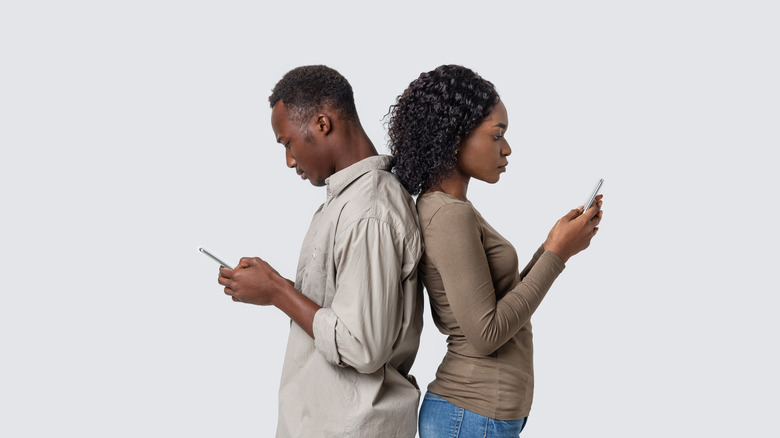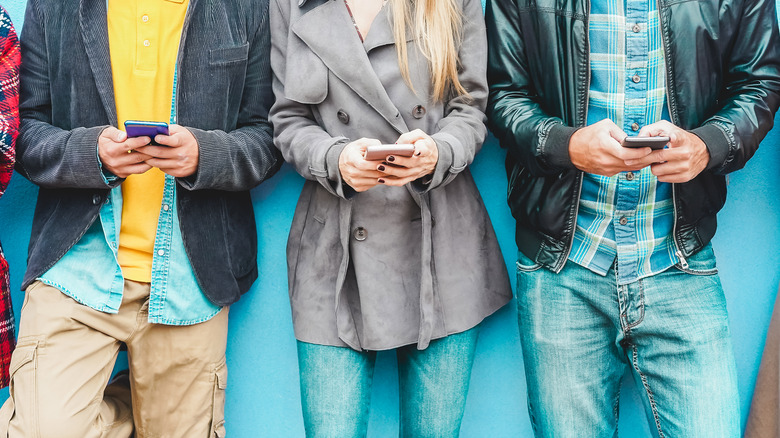How Do You Break Your Addiction To A Social Media App?
Let's face the facts here: we live in a rampant digital age. Mostly everyone has smartphones and a great percentage of the world — 3.6 billion people in fact — are on social media (via Statistia). So, it's not far-fetched to think many of us are addicted to a social media app, whether that's Facebook, Instagram, TikTok, or any number of the other countless apps out there.
But, what's empowering about said-social media addiction is that you don't have to let it rule your life – you can beat it, you just need to know the steps. According to Insider, the first step is to limit the hours you spend on the apps. Challenge yourself to spend an allotted time on Instagram instead of having unlimited time. Researchers have concluded that this, as result, will make you feel a sense of serenity. Another good step is to disable notifications, Insider added.
Forbes revealed that one of the biggest reasons we head to social media is boredom. The outlet added that the default reaction to "I'm bored" or "I'm stressed" is to open up a social media app. But, a great way to break that habit is to disable notifications and challenge yourself to do something else other than scrolling on Twitter to get rid of your boredom. For example, stretching, making a cup of coffee, or even taking a short walk are all good solutions that will stimulate your brain and erase your default to go on social media, Forbes added.
Being addicted to social media can lead to various mental health struggles
According to McLean Hospital, an addiction to social media is not healthy (many addictions aren't in general, but you get the point). Such addiction can lead to various anxiety disorders, and we've all experienced what it's like to compare ourselves to the people we see on Instagram. Though social media apps like Instagram have tried to make the app more useful and mentally friendly (by restricting and suppressing the number of likes), there's still a long way to go, the health service said. "Even if you remove the likes, there continue to be opportunities for comparisons and feedback," Jacqueline Sperling, a psychologist at McLean Hospital, said. "People still can compare themselves to others, and people still can post comments."
Another aspect of social media addiction is the fear of missing out, the outlet added. If 3.6 billion people are on social media, wouldn't you feel a little left behind if you're not on it, too? Additionally, joining social media comes with a variety of problems, including something called "the risks for the reward." McLean Hospital explained how social media offers a reward, but the risks for said reward are unpredictable. "One does not know how many likes a picture will get, who will 'like' the picture, and when the picture will receive likes," Sperling said. "The unknown outcome and the possibility of the desired outcome can keep users engaged with the sites."
That said, to conclude, social media is not good for anyone's mental health. Luckily, you know how to beat it.

